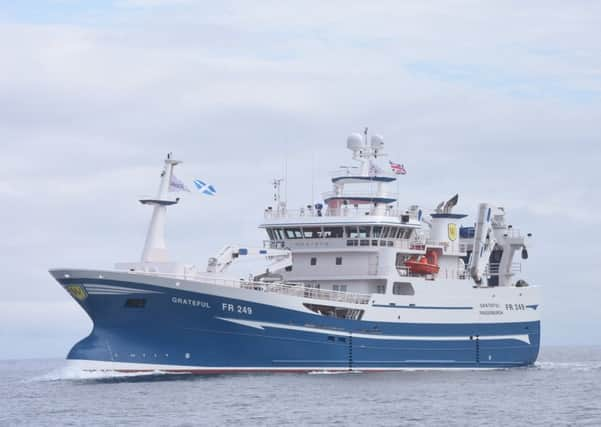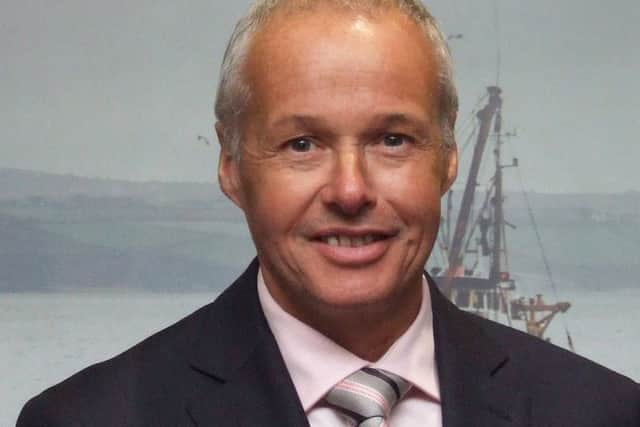Ian Gatt: Feeding the world with fish in a sustainable industry


Much more sustainable, they argue, to have small-scale artisanal fishers working our fishing grounds as opposed to large trawlers. A simplistic notion which at first glance has some appeal, but on close examination, not one that stands up to any real scrutiny.
Take the Scottish mackerel and herring (pelagic) sector as an example. Although there are a number of small-boat hand liners working the fishery, the overwhelming bulk of the catch comes from a relatively small number of large and very sophisticated trawlers.
Advertisement
Hide AdAdvertisement
Hide AdYet, our herring and mackerel fisheries are among the most sustainable around, with virtually all of them carrying the prestigious Marine Stewardship Council eco-label for the responsible way in which they are managed.


The fishery is very carefully regulated and controlled, with scientific stock assessments used for the setting of catch levels.
Furthermore, these large vessels in our pelagic fleet work a clean fishery where there is virtually no by-catch of unwanted fish. The result is our mackerel and North Sea herring stocks are healthy and robust. Although the Scottish pelagic fleet is comparatively small, each boat carries many more crew than smaller vessels and the industry supports a large onshore processing sector, employing more than 2,000 people. Our mackerel sector alone is worth hundreds of millions of pounds to the Scottish economy each year.
Mackerel and herring shoals are mostly located in deep water many miles from the coast where it would be too dangerous for small craft to venture. In the case of mackerel, much of this fishing takes place in the winter where only a large vessel could ever safely harvest the fish.
But our environmentally-friendly credentials go even further when compared to other methods of protein production.


A recent study by the NAFC Marine Centre in Shetland found that the carbon footprint of the Shetland mackerel trawl fishery is low compared to land-based meat production, with it being 8.5 times lower than the best scoring meat and up to 47 times lower than the worst.
Mackerel is, therefore, a very efficient, environmentally-friendly means of primary food production in terms of carbon emissions.
Here is another thought. Around 17 per cent of the world’s food protein consumption comes from fish.
Advertisement
Hide AdAdvertisement
Hide AdBut the UN Food & Agricultural Organisation notes that in a world where more than 800 million people continue to suffer from chronic malnourishment, and where the global population is expected to grow to 9.6 billion people by 2050, we must meet the huge challenge of feeding our planet while safeguarding natural resources for future generations. The Scottish pelagic sector has a role in addressing this challenge and already a fair proportion of our catch is exported to markets such as West Africa.
Our fisheries, if sustainably managed, can play a huge role in filling the world’s food requirements – and that means employing a mix of both big and small boats. The key to sustainable fishing lies in a balanced structure, with each segment of the fleet complementing the other, whilst at the same time never forgetting our environmental responsibilities.
In Scotland, we are lucky to have such a rich and broad range of fisheries, from small creelers and hand liners to large pelagic vessels. It is a broad mix which we should cherish – and each and every one has an important role in putting sustainably caught food on our plates.
Ian Gatt, chairman of the Scottish Pelagic Sustainability Group.